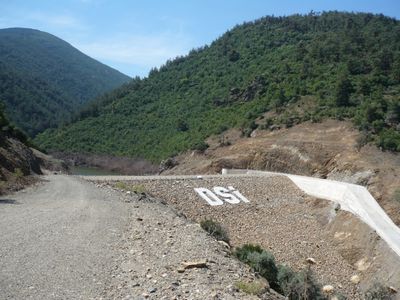 After a trend of decentralisation of large irrigation schemes management, based on surface water, and of an increasing individual and private use of groundwater use in Turkey, there is a current redeployment of the state in irrigation development, through the planning programme “1000 small-dams in 1000 days” over the country. Based on local examples where irrigators appropriate those projects sometimes in very various ways, the aim is to study the construction or not of water ‘territories’ et the articulation of public, private and community arenas around the resource management. The comparison of two small-dam projects in the dynamic agricultural region of Izmir shows how the hydraulic bureaucracy is renewing its hydraulic mission, sustaining its expertise and strengthening its authority. The development of infrastructure goes beyond irrigation objectives, as it materializes the iconic power of the state in rural areas by rapidly providing visible results. However, the development of public irrigation is taking place in a very different context from that in the 20th century: the hydraulic bureaucracy encounters in the field farmers who are already used to irrigating thanks to groundwater, and to dialoguing with authorities around local projects. It thus engages in pragmatic discussions with farmers, who have progressed beyond being mere ‘beneficiaries’. Through the example of small-dams, the thesis thus focuses in this encounter between local ‘territories’, which acquired a social reality, and hydraulic objects having their own trajectory (evolution of symbolic, technical and then hydrosocial object, during the stages of planning, negotiation and appropriation). This work joins the on-going debates in Turkish studies about the co-construction of public action on the one hand, and the position of the rurality in the geography of the Turkish state on the other hand.
After a trend of decentralisation of large irrigation schemes management, based on surface water, and of an increasing individual and private use of groundwater use in Turkey, there is a current redeployment of the state in irrigation development, through the planning programme “1000 small-dams in 1000 days” over the country. Based on local examples where irrigators appropriate those projects sometimes in very various ways, the aim is to study the construction or not of water ‘territories’ et the articulation of public, private and community arenas around the resource management. The comparison of two small-dam projects in the dynamic agricultural region of Izmir shows how the hydraulic bureaucracy is renewing its hydraulic mission, sustaining its expertise and strengthening its authority. The development of infrastructure goes beyond irrigation objectives, as it materializes the iconic power of the state in rural areas by rapidly providing visible results. However, the development of public irrigation is taking place in a very different context from that in the 20th century: the hydraulic bureaucracy encounters in the field farmers who are already used to irrigating thanks to groundwater, and to dialoguing with authorities around local projects. It thus engages in pragmatic discussions with farmers, who have progressed beyond being mere ‘beneficiaries’. Through the example of small-dams, the thesis thus focuses in this encounter between local ‘territories’, which acquired a social reality, and hydraulic objects having their own trajectory (evolution of symbolic, technical and then hydrosocial object, during the stages of planning, negotiation and appropriation). This work joins the on-going debates in Turkish studies about the co-construction of public action on the one hand, and the position of the rurality in the geography of the Turkish state on the other hand.
Toutefois, le développement de l’irrigation se fait dans un contexte très différent de celui du 20ème siècle : la bureaucratie hydraulique rencontre sur le terrain des agriculteurs déjà habitués à l’irrigation grâce à l’eau souterraine, et à la discussion avec les autorités autour de projets locaux. Elle engage donc des discussions pragmatiques avec les agriculteurs qui ont dépassé leur position de simples « bénéficiaires ». A travers l’exemple des retenues collinaires, la thèse s’intéresse donc à la rencontre entre des territoires locaux ayant acquis une réalité sociale, et des objets hydrauliques – les retenues collinaires – ayant leur propre trajectoire (évolution d’un objet symbolique, technique puis hydro-social, au cours des phases de planification, négociation, appropriation), rejoignant les débats dans les études turques sur la co-construction de l’action publique d’une part, et la place du rural dans la géographie de l’Etat turc d’autre part.
Key words: Surface Water, Groudwater, Hillside Storages, Irrigated Areas, Public Action
Photos: Hillside storage of Bağyurdu, Kemalpaşa District (Izmir) ©Selin Le Visage






